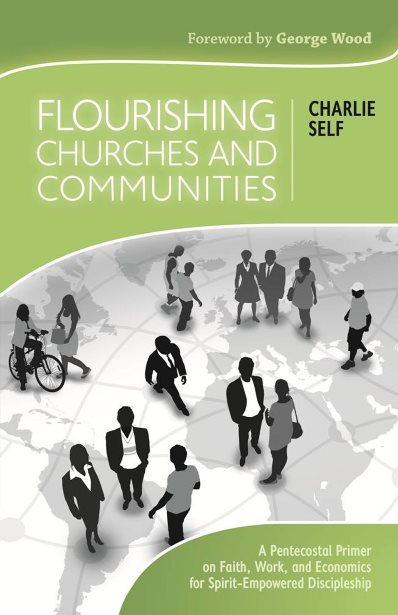 “Christian discipleship is nothing less than conformity to Christ—as individual believers and as local communities,” writes Charlie Self in Flourishing Churches and Communities, CLP’s Pentecostal primer on faith, work, and economics. “The very life of God is in us.”
“Christian discipleship is nothing less than conformity to Christ—as individual believers and as local communities,” writes Charlie Self in Flourishing Churches and Communities, CLP’s Pentecostal primer on faith, work, and economics. “The very life of God is in us.”
Most of us have heard the Great Commandment and the Great Commission in their basic forms, but understanding the relationship between the two and living out that combined imperative can be difficult to wrap our minds around.
How do we love the Lord with all our heart, soul, and mind? How do we love our neighbor as ourselves? How do we love ourselves without descending into selfishness?
Self argues that “all of these ‘loves’ grow together,” and thus, we should be wary of drawing unhealthy divides, focusing on one area or group of areas to the detriment of the other(s). Fruitful stewardship depends on a healthy and holistic focus not just on who we ought to be serving, what we ought to be doing, and how we ought to be doing it, but first and foremost, from where such activities are sourced and directed.
“We have a divine invitation to intimacy with God,” Self writes, and such intimacy is bound to transform us from the inside out, extending our vision onward and upward, tempering our self-love, guiding and leveraging our individual gifts, and unleashing us toward loving relationships and flourishing communities, in turn.
To demonstrate the interconnectedness of all this and how it relates to Christian stewardship, Self provides a helpful framework he calls the “Transformational Quartet,” combining (1) spiritual formation (loving God), (2) personal wholeness (loving self), (3) relational integrity (loving others), and (4) vocational clarity (loving our purpose).

Self’s high-level explanation of each is offered below:
- Spiritual Formation (the underpainting on the canvas). We cultivate intimacy with God through the spiritual disciplines and awakening to the inner work of the Spirit. This is the “Loving God” part…Though this is intensely personal, it does not take place in isolation. We need community to grow as we pray and play, worship and work, for the Lord.
- Personal Wholeness. Our whole being is being healed and transformed as we become psychologically and spiritually healthy. This corresponds to “Loving Self”…Here we see the character and nature of God changing us from the inside out (2 Peter 1:1–9).
- Relational Integrity. With God’s help we can move from oppression and repression, codependency and dysfunction, to healthy liberty that can love and laugh, set good boundaries, and understand the relational dynamics of our life situations. Relational integrity is foundational for employers and employees and for all economic and social interactions. This is “Loving Others” joyfully.
- Vocational Clarity. Understanding our personality, strengths, spiritual gifts, and specific life purpose does not guarantee a lifetime of perfect jobs, but it will help guide us to the right field of work and shape how we work. When the universal calling of stewardship is united with specific understanding of our part in God’s plan, there is great fulfillment. We can know and love “Our Purpose.”
For more details on how each of these relates to our daily stewardship and economic engagement, I encourage you to grab the book.
[product sku=”1440″]

